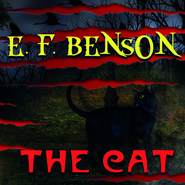По всем вопросам обращайтесь на: info@litportal.ru
(©) 2003-2025.
✖
Mammon and Co.
Настройки чтения
Размер шрифта
Высота строк
Поля
"You must decide," he said. "We cannot possibly save the mother and the child."
"Save the mother!" cried Jack. "Oh, save her!"
His voice was suddenly raised almost to a shriek, and through the closed door, Lily, hearing it, started up. In another moment he came back into the room, trembling frightfully, with a wild, scared look.
"Jack! Jack!" she said. "My poor fellow! be brave. What is it?"
"They have to try to save one," said Jack. "Oh, Lily!" And with a sudden upheaval of his nature, and an uprising of all that was tender and remorseful, long overlaid by his selfish, unscrupulous life, he gave way utterly and abandonedly. "Oh, Kit! Kit!" he moaned. "If she dies it will be my doing. I shall have murdered her. And we have been married six years! She was not twenty when we married – a child almost. And what have I done for her? Have I ever made this wicked, difficult business of life any easier for her? I, too, have been false and faithless, and when poor, brave Kit came to tell me – what she told me – I did that which may have killed her. She has to bear it all, and I, brute, bully and coward, go scot-free. She fell like a log, and I was not sorry, only frightened. And she told you, she told Toby, she told the doctor, that she had fallen herself. Poor, loyal Kit! And I am a fine fellow to be loyal to! O God! God! God!"
He writhed on the sofa, where he had flung himself in dumb, twisted agony. The pains of hell, a soul knowingly lost, were his. All the love he had once borne to Kit, all the years of their excellent comradeship together, rose and filled the cup of unutterable remorse.
Lily, woman to her heart's core, was one throb of pity for them both, and could scarce find words.
"Oh, Jack!" she said; "there is hope. It is not hopeless. They did not say that. It is awful; but be strong. We have to wait."
He did not answer her, but lay like a man dead, his face hidden in the elbow of his arm. Lily saw it was no use attempting to reach him by any words. For the time he lay outside the range of human sympathy, inaccessible. The outer darkness of remorse and regret was round him, not to be illuminated, but unpierceable and of necessity so. He was not a good man, but an utterly bad one would not have so suffered.
So they sat silent, and the sun sank lower behind the trees, till at length a few rays through the yet thinly clad branches came in level at the window. Suddenly Jack sat up.
"I hear a step," he said, and next moment Lily perceived it, too.
"Go into the hall to them, Jack," she said, thinking that he would rather face the inevitable moment of news alone.
"I can't," said he.
The step came down the stairs, across the flagged hall, and Dr. Ferguson entered.
"She will pull through," he said. "Unless anything quite unforeseen happens, Lady Conybeare will do well."
CHAPTER V
TOBY ACTS WITHOUT SPEAKING
Ted Comber had passed an arduous but most satisfactory morning. His own particular hairdresser had been kind, sympathetic and consoling. Gray hairs were there, and it was no use denying it; but there was a wonderful new preparation, not really a hair-dye, but a natural product, which, like everything else connected with the hair, cost ten and sixpence the bottle, and was to be confidently recommended. He would send it round to South Audley Street. A little to be applied with a brush every day to the parts affected, and the smell was not unpleasant.
From there he had gone to his tailor's, and had a long talk to Mr. Barrett, who fully appreciated the solemnity of the braid idea, and said it might be an epoch. Down the edge of the coat – exactly so – and the waistcoat in the same manner, very broad. And what did his lordship think about the treatment of the trouser? Braid on the outside of the leg, or not? And his lordship thought braid. The suit could be ready by Saturday evening, and so Ted could wear it for the first time on Easter Sunday, said kind Mr. Barrett.
He came out of the shop humming a tune, very much pleased with himself and braid and Mr. Barrett. Mr. Barrett always consulted him as if his advice was worth having, with a bent back. To be a sort of arbiter elegantiarum in town was one of Ted's nasty little ideals, and he contrasted himself with a friend of his who was being measured as he came out, who, making some suggestion, not to Mr. Barrett, but only to an assistant, received the curt reply, "Not worn like that now, sir." How different would be the reception of any suggestion of his! Mr. Barrett would look respectfully thoughtful for a moment or two, and then say, "Very becoming, very becoming indeed." As likely as not he would recommend the same innovation to the next customer, endorsing it with, "Lord Comber has just ordered a coat of that cut, sir."
It was already after one when he left Bond Street, and he turned briskly homewards. The morning was so lovely that he determined to walk, and he reached home just before lunch. The inimitable preparation had already arrived from Perrin's, and he went up to his bedroom to try its properties. It was dark chestnut in colour, with a curious pungent smell about it, and he applied it carefully, as directed, to the affected regions. The affected regions smarted a little at the application, but the pain could not be called really serious.
Though Ted had passed such assiduous hours since breakfast, the afternoon was so pleasant that he determined to have another stroll before tea. He had seen no one he knew that day except Toby, and he yearned for a little light conversation. So, after changing his blue suit for a more rigorous costume, soon after four he was on his airy way to the Bachelors' Club. Tea and toast always tasted so good at the Bachelors' Club, and he liked to think he was a Bachelor. It was pleasant also, as he walked up the steps, to contrast the sunny content of his five o'clock mood with his moment of real anxiousness this morning.
The reading-room was nearly empty, and he sank peacefully into his favourite chair by the window, and took up the Pall Mall. He abstained from the leading article, and from "Silk and Stuff," or something of the kind, at the bottom of the first page, cast a vague eye over "The Wares of Autolycus," without any definite idea as to what they might be, and turned to the small paragraphs to which he bore a closer affinity. Royal Highnesses were doing various tedious things, race-meetings among them; the German Emperor had written a hymn, or climbed a tree, or ridden a locomotive; and about half-way down the page he saw the following:
"The Marchioness of Conybeare is lying in a very critical condition at her residence in Park Lane."
Ted read it through once, hardly grasping it, and once more, thinking he must be the victim of some gigantic practical joke. The next moment he got hastily up from his chair, and at the door ran into an apologetic waiter, who was bringing his delicious tea and toast. But he did not pause for that, and going out into the street hailed a hansom, directing the man to drive him to Toby's house. They would be sure to know there, and, for private reasons of his own, he did not wish after his repulse of this morning to make a target of himself again at Park Lane.
Now, barely half a minute before his hansom drew up there, Toby, who had been sent out by his wife to get air, had come in. He was intending to see whether there were any letters for either of them, and then walk back to Park Lane. His straightforward, wholesome soul was full to brimming, and the ingredients of that cup were sympathy for Jack, anxiety for Kit, and blind anger and hatred for Ted. He was not a canting analyst, and could not have said which ingredient usurped proportion, nor did he cultivate mixed emotions, and the three existed quite separately and individually, making him as wretched as his nature permitted him to be. Between them all he felt pulled in pieces; any conclusion to either would make the other two more bearable.
He found a couple of letters lying on the hall-table for his wife, and putting them in his pocket to take back to her, he was just turning to leave the house again, when the front-door bell rang. The man who had let him in was still there, and Toby, half-way between unreasonable hope and sickening apprehension, thinking that it might be some news from Park Lane, advanced also towards the door, so that when it was opened he was close to it. Outside, on the topmost of the four steps that led up from the pavement, in the most well-cut of raiment, the glossiest of patent-leather shoes, and the most faultless of hats, stood Ted Comber.
Toby gave one short gasp, licked his lips with the tip of his tongue, took one step towards him, and knocked him backwards down the four steps. A cry of passionate dismay escaped the falling body; the faultless hat rolled under the hansom, the gold-crutched stick flew in a wide parabola into the area, and Toby, smiling for the first time since that morning, and not caring to improve or spoil the situation with words, walked away. The only regret that lingered in his mind was that there had not been a fuller gathering to observe the scene; however, the cabman and his own footman had an uninterrupted view of what had taken place.
So Toby's footsteps went briskly away along the wet pavement – there had been a cool spring shower some half-hour ago – and the footman at the front-door and the cabman on his exalted perch were left staring. The horse had shied and swerved at this considerable commotion on the pavement, and before the driver could stop it had taken a couple of prancing steps forward, bringing the off wheel with devilish precision over Ted's hat, crushing it lengthways. Its unenviable proprietor lay fallen across the pavement, his chestnut curls within a few inches of the curb, for the moment stunned. Returning consciousness reminded him of a severe pain on the side of his head, a really acute anguish in his right elbow, another hardly less distressing in his shoulder, and two more in his leg. Then he picked himself up, and a being more sunk beneath the zones of pity, take him body and mind together, could scarcely have been found in all big London. His frock coat was a fricassée of dirt, his face was vanished in a splash of mud, the elbow of his right sleeve, whence came one of the most excruciating pains, was torn through shirt, and as he got up he could feel the grating of his broken watch-glass. A footman, discreetly but undisguisedly grinning, watched him from the door of Toby's house, a cabman from his perch. Dignity is scarcely compatible with dirt, and Ted knew it. He picked up his hat, which looked as if a drunken man had been trying to fold an opera hat the wrong way, and the battered remnants of what so lately had been so fine climbed into the hansom again, and requested to be driven home. It had not been a very successful visit.
His reflections were not the most enviable. That act of Toby's, for which he was now but a sorry parcel of aches, meant the worst. And at that thought all that was passably decent in the man came to the surface. There was not enough to cover a large surface, but there was a little. He pushed open the trap at the top of the hansom and changed his destination to Park Lane. Aching and bleeding as he was, he would not wait, wait, wait for tardy news. Nor was his anxiety wholly selfish; he had – God knows what proportion this bore to the whole – a fear based on affection. Then, having given the order, he devoted himself to patching up a very sorry object.
His face was bleeding under the right eye, and his cheek was scratched and raw; it seemed as if all the stray small objects in a London street had been inlaid into it in layers by an unpractised hand. His elbow was cut, his knee was cut, and both ached like toothache. But he mopped and brushed and dabbed till the balance of dirt was on his handkerchief, and when that was clear, realizing that to touch the breaches any more meant the transference of the dirt back again, he leaned idly against the cushions of the cab, in a state of mind compounded of anxiety and unutterable depression. Little had he supposed that the mirrors in the corners, often by him so satisfiedly and light-heartedly used, would ever have reflected so battered a self.
There was a carriage at the door when he drove up, but it gave him access, and after ringing the bell he huddled back into his cab again. Even now, when, to do him justice, he was a prey to the most poignant emotions that had ever touched his putty soul, the instinct of regard for his own appearance, the desire to shield the shattering it had undergone, asserted itself. He leaned forward in the hansom when the front-door was opened, showing to the footman only his undamaged left.
"How is Lady Conybeare?" he asked.
"A great improvement, my lord," said the man.
"Thanks. Please tell the coachman to drive to 12, South Audley Street."
Kit was alive – better. His spirits, elastic as his complimented skin, instantly began to recover themselves, and his thoughts straying out of selfishness, absorbed for an hour in another, turned homewards again like sheep to their fold. He had been afraid that he had dropped that nice box of toys, the world, and that they would have been broken. But it seemed that it was not so. He had dropped them, it is true, and some of them, himself particularly, were rather scratched and muddy, but they were not broken. He could play with them a long time yet.
Instinctively again he turned to the slip of looking-glass in the corner of his hansom. His scratched face had stopped bleeding, and it did not look so bad as he had feared. His hat, it is true, was a sorry sight, but it is easy to get new hats, and the thought that Toby's barbarous revenge had mainly spent itself on a Lincoln and Bennett was even a little amusing. Much more important was the patch of whitening hair above his ear, and he turned his face sideways to examine it. Even that one application of the dark fluid he had made just before lunch had already changed it; the white hairs seemed to have been blotted with colour. How delightful!
He paid the cabman, let himself into the house, and went with a slight limp up to his bedroom, where he rang for his valet. He had had a fall, he explained, and must change his clothes and have a bath. Also, he would dine by himself at home, and a telegram must go at once to the Haslemeres to say that he had hurt himself and could not come. On the whole, he was not sorry to absent himself. Lady Haslemere had really become rather tiresome lately. She was always talking about bulls and bears, and Ted did not care in the least for the menagerie of the City. His warm bath with pine in it was soon ready, and he went to repair the damages of the day.
As he dressed he reviewed the agitations of the hour that had passed. An undignified part had been thrust on him by Toby, for the most complacent cannot flatter themselves that they show a brave figure when they are forcibly laid on pavements. But it was in the very nature of the case that the reason of the blow prevented the story going abroad. It was impossible that Toby should cause it to be known that he had knocked him down, for people would ask why. Secrecy, at any rate, was desired on both sides. As far, then, as that most unpleasant moment was to be regarded, he had only to apply vaseline to his cuts, order some new clothes, and live the occurrence down; not publicly – that would have been trying – but privately. He had only to get over it himself. Anyhow, Toby knew by this time how completely his bumble-bee diplomacy at Stanborough had miscarried, and at that thought the smarting of his own wounds grew appreciably less. Decidedly it had not been a pleasant moment when he flew backwards on to the pavement, but it was over. He smarted far more under the effect of the insult than under the insult itself. It was very like Toby, he thought, to deal with him in that manner. Anyhow, there was a smart in Toby's soul which no vaseline could reach.
Against the violence that had been done him he could set the news of Kit's ameliorated condition. He told himself with sublime naïveté that it was worth while being knocked down to learn that. His anxiety had been terrible, really terrible, and he could not but balance that weight removed against other unpleasantnesses. Things were not so bad as they might have been. But it had been terrible, and he easily persuaded himself that he was suffering horribly. What had happened he did not yet exactly know; in any case it was horrible, and it would be wise not to dwell on it. He would know to-morrow, and as he brushed his hair he saw again with satisfaction the working of his pungent fluid.
He felt battered and tired, and, putting on a floss-silk dressing-gown, lay down on the sofa in his bedroom, and rang the bell for tea. Really, he had been through a life-time of suffering since he rang the bell for tea an hour before at the Bachelors' Club, and he desired that restorative agent most acutely. Most of all – and this was highly characteristic – he desired to dismiss the experiences of the day from his mind. It had all been extremely unpleasant, and there was a good deal that was unpleasant still hanging about, like the sultriness of a thundery day, low and imminent. But at the moment he could do nothing: no step that he could take would make matters better, no effort of will would disperse the thunder-clouds, and it was idle to brood over things, and mar one's natural cheerfulness with morose and gloomy reflections. His bright, shallow personality reflected like a wayside puddle whatever was immediately above it, and held no darkling shadows or remote lights of its own, and he was rightly very careful of the buoyancy of his spirits, since that was the best of him, and undeniably of the greatest use.
There was a small table by his hand, with the gold-topped scent-bottle, the evening paper, and a few yellow-covered French books on it. He sprinkled his forehead with the scent, threw the evening paper away, for there was a little paragraph in it which he wanted to forget, and took up Gautier's "Mademoiselle de la Maupin," and opened it at random. He read a page or two, and became interested, absorbed. The magic of words, a spell more potent than any wizard's incantation, took hold of him, and the indoor hot-house atmosphere of infinitesimal intrigue was most congenial. The low roar of London traffic outside grew dumb, the agitations of harsh experience grew remoter, the events of the day became to him as the remembrance of some book he had read, and the book he was reading grew flushed with the realities of life.
Toby in the meantime, after his short and decisive interview without words on the doorstep, had walked back to Park Lane, and got there not very many minutes after his interviewer had made his call. He went straight into Jack's room, and found Lily there alone. Question and answer were alike needless; her face answered what he had not audibly asked.
"She will get through," she said. "They think she will certainly get through."
Toby threw his hat on to the sofa.
"Thank God! oh, thank God!" he cried. "Where is Jack?"
"Upstairs. They let him see her for a moment. He will be down again immediately. But they could not save both Kit and the child, Toby."
Toby sat down by his wife.
"Oh, Lily, what a difference five hours can make!" he observed with that grasp of the obvious which distinguished him. "By the way, I met someone when I was out."
"Whom?"

















